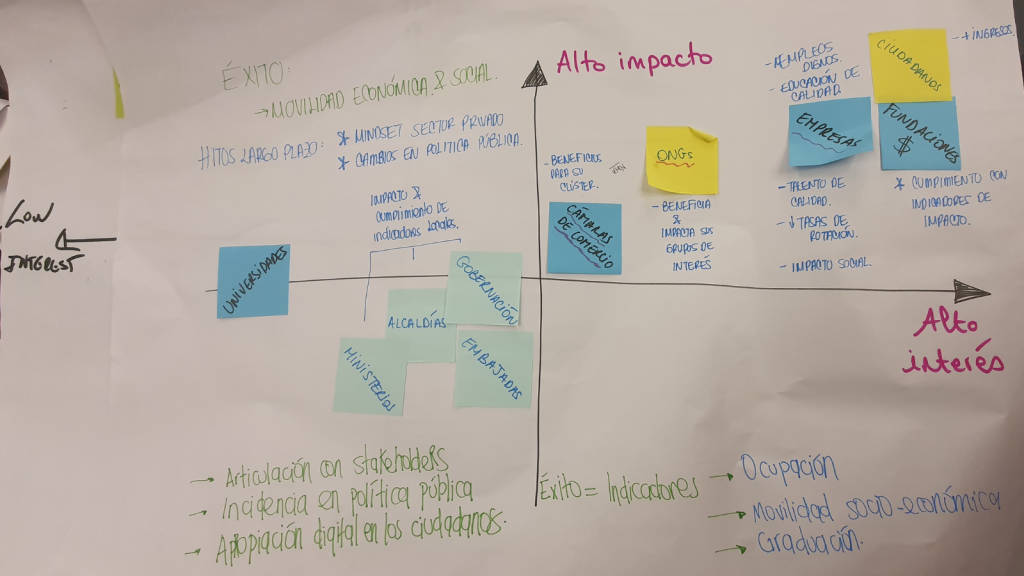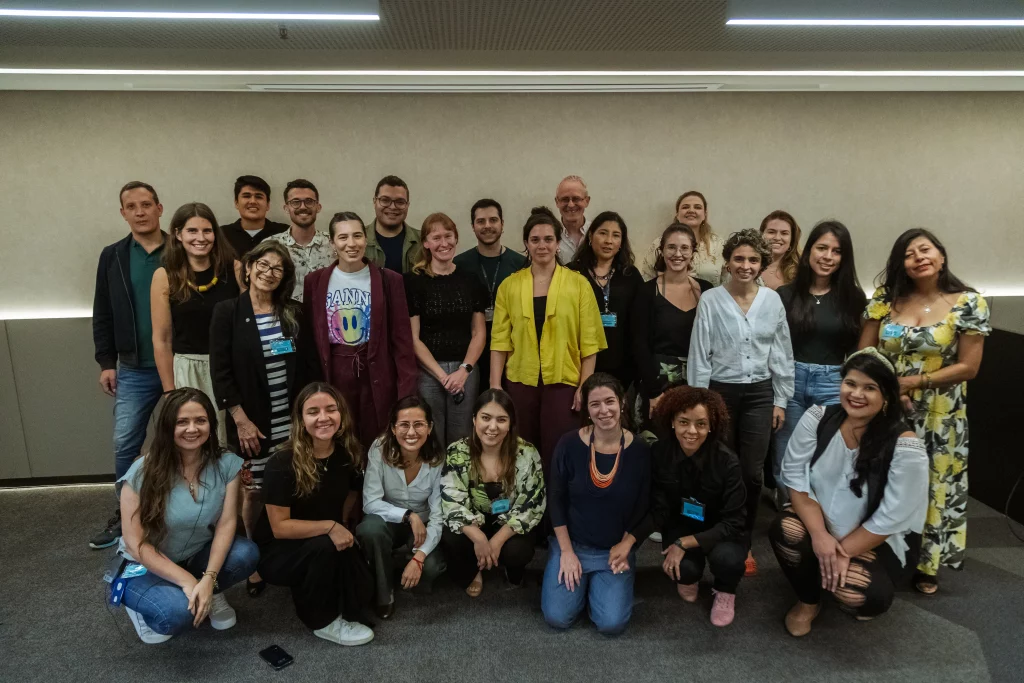We are now three years into the SCILLS program (with 20 grantee partners in the 2023-2025 cohort) in six strategic focus countries. At the end of November 2023, we went to Sao Paulo to host the first in-person kick-off grantee gathering. Bringing together eight partner organizations from Colombia and Brazil,[1] the ISOC Brazil and Colombia Chapters, as well as partners from the 2022-2024 cohort,[2] our aim was to strengthen relationships and refine grantee partners’ Monitoring, Evaluation and Learning (MEL) plans.
The SCILLS program (Strengthening Communities, Improving Lives and Livelihoods) supports registered 501(c)(3) or equivalent organizations to implement projects in Bangladesh, Brazil, Colombia, Ghana, Indonesia, and Senegal that improve people’s lives by leveraging the Internet. The program funds projects that contribute to improving economic opportunities for unserved and underserved communities as well as projects that contribute to improving learning outcomes for students. For more details, see https://isoc.pub/SCILLS
In Latin America, the Program is providing 2-year grants to organizations in Brazil and Colombia that are deeply rooted in community issues, over and above digital empowerment. The aim is to support under-represented groups to improve their education, employability, and entrepreneurship opportunities by improving their digital skills.
It was a great opportunity for participants to get to know each other and share how they approach improving digital skills and how the Internet is central to their work. For the Foundation, we believe that meeting organizations at the beginning of the grant cycle will tighten bonds, help mitigate future implementation challenges, and build a culture of learning together. Here we want to share what we learned from convening grantee partners at the beginning of the grant period.
1. Bringing together organizations with the same purpose and different approaches helps challenge the status quo.
“What I liked most was the possibility to exchange with grantees. I think it would help generate more impact, mitigate risks and foster innovation.”
Grantee partner, Colombia
Organizations, most of them funded by multiple sources beyond the Internet Society Foundation, and working towards the same goal had different approaches to reach their goal. Through workshops aimed at refining partners’ MEL plans, we challenged assumptions, clarified how the different actors in the system interact, outlined how to build a measurement framework and developed evaluation and learning questions. As a starting point, mapping the context in which these organizations work helped participants to think not only about the challenging context but also the enabling one and how they can leverage it. Then, by delving into the stakeholder map, we found that many organizations face similar challenges and opportunities. For example, grantee partners discussed how to engage – at inception, with high power, low interest stakeholders that can greatly impact their project.

2. It is a space for learning about our partners’ ideas, people and systems in which they evolve.
During these two days, we delved into understanding how our partners work, with whom, what context they operate in, and connect the dots about how change happens and what information they need. Grantees are often overwhelmed with the amount of data that funders ask them to collect. We hope that the evaluation and learning questions that emerged from the discussions, as well as the guidance provided to develop a measurement framework, will help organizations with multiple indicators to focus on what really matters to move the needle.
“We want to reflect how we can improve our data collection in relation to the impact of the Internet and the impact of digital learning on our beneficiaries.”
Grantee partner, Brazil
3. Promoting psychological safety enables honest conversations.
It is important during this type of gathering to make participants feel that we are operating in a safe space. While having the donor in the room can feel intimidating, our approach of learning together, candor, and curiosity really helped create this space. This allowed for us all to drive innovation and collaboration and discuss opportunities and challenges together. Offering live interpreting services and having materials in English, Portuguese, and Spanish added to the creation of this safe space as it allowed people to communicate in their own language.
It is worth noting that MEL can quickly become overwhelming, therefore we paid attention to keep the vocabulary simple, breaking the MEL plan into smaller steps and giving clear practical examples.
4. Providing an opportunity for grantee partners to collaborate with each other.
One topic that comes up often from our grantees is the desire for a learning community or a community of practice. Many of our grantees are interested in working with other grantees that are tackling similar problems or working with similar target groups. Participants from the start were willing to build a community to connect with each other. The gathering was beneficial for identifying how projects complement each other and help organizations identify synergies and opportunities to collaborate to amplify the impact of their projects. For example, the ISOC Brazil Chapter pledged to work with some grantees on advocacy while the ISOC Colombia Chapter saw an opportunity to approach some companies that will employ students from one project to talk about cybersecurity, a key threat to the Internet’s resilience.

5. Delving into potential future challenges, risks and needs.
Face-to-face early engagements are crucial to uncover assumptions and potential future challenges that organizations may face during the grant period. During the assumptions mapping exercise for example, we uncovered some very important and interesting questions such as:
- How to ensure long-term program participation in training programs, especially for target beneficiaries who face structural and socio-economic barriers?
- How to ensure participation of program participants who might be under resourced (e.g. without access to computers)?
- How to ensure children stay safe online when teaching them skills in programming and AI?
These questions are probably not unique to these grantees, and we will be sharing with our wider community what we have learned, as projects unfold. As a result of this engagement, the Foundation Program Team has a clearer pathway to support organizations over the next two years.
“The assumptions mapping session will become part of the organization’s planning: questioning one’s own certainties opens up opportunities and possibilities to reinvent and improve one’s own performance.”
Grantee partner, Brazil
Over the grant period, the team will provide technical assistance and tools to grantee partners. We will engage them in conversations, reflections, and brainstorming sessions through check-in calls, a Listserv, site visits, and monitoring formal reports. As we continue our journey, we are eager to hear what you have learned. We especially welcome ideas on how to build and sustain a community of grantees.
[1] Associação Generation Brazil (in partnership with TechSoup), Associaçaõ Nova Escola, Centro Ciencia y Tecnología de Antioquia, Colnodo, Educamas (in partnership with Simplon Foundation), Empreende Ai, Gen You Employed Colombia (in partnership with TechSoup), Sesame Workshop
[2] Enseña por Colombia Makaia, Fundación Capital (in partnership with Colnodo).
